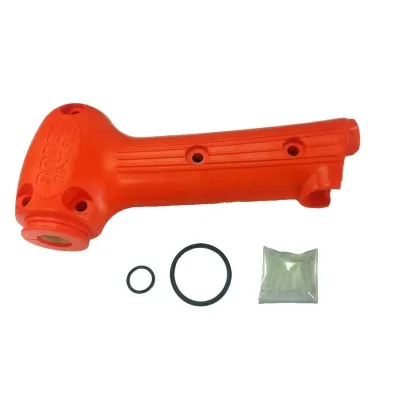The seller is responsible for material defects in the products, in accordance with applicable regulations. The buyer is obliged to notify the seller of any visible defects within two months of discovering the defect, and no later than two years from the transfer of risk to the buyer. If, after the buyer has received the goods, it is found that the goods have a defect that could not have been detected through normal inspection upon receipt, the buyer must notify the seller of the defect within two months from the day the defect was discovered, under the threat of losing their rights.
Material defects for which the seller is responsible:
- For material defects in the goods that existed at the moment of the transfer of risk to the buyer, regardless of whether the buyer was aware of them.
- For material defects that arise after the transfer of risk to the buyer if they are due to causes that existed before that moment.
- It is presumed that any defect in the goods that becomes apparent within one year from the moment of the transfer of risk also existed at the time of transfer, unless the seller proves otherwise or the nature of the goods or defect suggests otherwise.
A defect exists:
- If the goods do not conform to the description, type, quantity, and quality, or lack functionality, compatibility, interoperability, and other characteristics as stipulated in the sales contract.
- If the goods are not suitable for any specific purpose for which the buyer needs them, and the buyer has informed the seller of this purpose no later than at the time of the contract, and the seller has agreed.
- If the goods are not delivered with all additional equipment and instructions, including installation instructions, as stipulated in the sales contract.
- If the goods are not delivered with updates as stipulated in the sales contract.
- If the goods are not suitable for use for the purposes for which goods of the same kind are normally used, taking into account all European Union and Croatian regulations, technical standards, or, if such standards do not exist, applicable codes of conduct in the relevant field.
- If the goods do not match the quality and description of the sample or model provided by the seller before the contract was concluded.
- If the goods are not delivered with additional equipment, including packaging, installation instructions, or other instructions that the buyer can reasonably expect.
- If the goods do not conform to the quantity or lack the features and other characteristics, including those related to durability, functionality, compatibility, and safety, which are customary for goods of the same kind and which the buyer can reasonably expect considering the nature of the goods and all public statements made by the seller or other parties involved in the previous stages of the transaction, including the manufacturer, particularly in advertising or labeling.
- If the goods were improperly installed or assembled, and the installation or assembly service was part of the sales contract and was carried out by the seller or someone for whom they are responsible.
- If the goods intended to be installed or assembled by the buyer were improperly installed or assembled by the buyer, due to a defect in the instructions provided by the seller or, in the case of goods with digital elements, provided by the seller or supplier of digital content or services.
If the buyer, based on the statements of the manufacturer or their representative, expected certain properties of the goods, the defect is not considered if the seller did not know or could not have known about these statements, or if such statements were retracted before the contract was concluded, or if they did not affect the buyer's decision to conclude the contract.
Defects for which the seller is not responsible: The seller is not responsible for defects if they were known to the buyer at the time the contract was concluded, or could not have remained unknown to the buyer. The seller is also not responsible for defects that the buyer could easily observe if the seller had declared that the goods had no defects or that the goods possessed certain properties.
Inspection of goods and visible defects The buyer is obliged to notify the seller of any visible defects within two months of discovering the defect.
If a material defect is established, the seller may be required to:
- Repair the defect,
- Deliver another product without defects,
- Reduce the price.
The buyer may terminate the contract only if they have given the seller a reasonable additional period to fulfill the contract.
If the buyer returns a damaged product within 14 days and requests a refund, the seller will notify the buyer in writing about the amount of depreciation due to the damage, which the seller has the right to claim as compensation. If the buyer does not respond to or accept the depreciation notice, the seller may file a lawsuit to recover the damages.
The seller may refuse to repair the defect if repair or replacement is impossible or would result in disproportionate costs, considering all circumstances, particularly the value of the goods without the defect, the significance of the defect, and whether repair or replacement can be carried out without significant inconvenience to the buyer.
The buyer may terminate the contract without granting an additional period if the seller informs them, after receiving notification of the defect, that they will not fulfill the contract, or if it is evident from the circumstances of the case that the seller will not be able to fulfill the contract even within the additional period. The buyer may also terminate the contract if the delay in fulfillment by the seller means that the buyer cannot achieve the purpose for which they concluded the contract.
If the seller does not fulfill the contract within the additional period, the contract is automatically terminated, but the buyer may maintain the contract if they inform the seller without delay that they wish to keep the contract in force.
If the defect is minor, the buyer does not have the right to terminate the contract, but they are entitled to other remedies for material defects, including the right to compensation for damages. The burden of proof that the defect is minor lies with the seller.
The costs of remedying the defect and delivering another item without defects are borne by the seller.
When the buyer is a legal entity, the rules on material defects prescribed by the Obligations Act apply, and the rules in this section do not apply.
The complaint should, for faster resolution, include photos of the damage or defects. The seller will also accept complaints in other forms.
If the defects are the result of improper commissioning, handling, storage, maintenance, or other improper actions by the buyer, the seller is not liable. Such defects, as well as defects not covered by the warranty and/or after the warranty period has expired, will be remedied by the seller at the buyer's request according to the then-applicable service price list.


































































































































































































































































































































